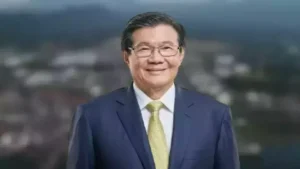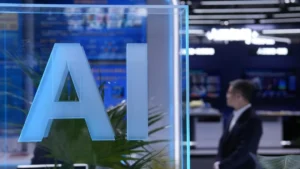New York — Jeff Bezos, the billionaire founder of Amazon and owner of The Washington Post, took to the stage at The New York Times’ DealBook Summit, offering a rare glimpse into his thoughts on the future of media, politics, and his own ventures. Despite the often adversarial relationship he shared with Donald Trump during the former president’s first term, Bezos expressed optimism about engaging with a potential second Trump administration, particularly when it comes to reshaping the narrative surrounding the media.
The dynamic between Bezos and Trump has been anything but cordial, with the former president frequently attacking Bezos’ business empire and accusing Amazon of tax evasion, all while maligning The Washington Post as a political tool. Trump’s ire at the paper’s critical coverage led to direct confrontations, including his administration’s decision to block Amazon from securing a $10 billion contract for cloud services with the Pentagon. This move, widely seen as retribution for The Washington Post’s aggressive reporting, underscored the contentious nature of their relationship.
However, in his recent comments, Bezos struck a notably more conciliatory tone, suggesting that both he and Trump have evolved since those early confrontations. “You’ve probably grown in the last eight years. He has, too,” Bezos said, implying that a second Trump administration could foster a more productive relationship with the press. Despite Trump’s fiery rhetoric toward the media, Bezos made it clear that he does not believe the press should be seen as an adversary. “I don’t think the press is the enemy,” Bezos stated. “The press is not the enemy, let’s go persuade him of this.” His remarks reflected a belief that dialogue and engagement could help change Trump’s perception of the press, an area that has defined much of his public rhetoric.
Bezos further elaborated on his view of a second Trump term, signaling an openness to collaboration on shared priorities. While their past differences on matters such as taxes, competition, and media freedom are well-documented, Bezos expressed optimism that the focus on deregulation and reducing government intervention could be an area where he might lend his expertise. “I am very optimistic this time around,” Bezos said. “He seems to have a lot of energy around reducing regulation, and if I can help him do that, I am going to help him.” This remark, though nuanced, indicated that Bezos is willing to put aside personal differences for the sake of larger policy objectives.
One of the more personal subjects touched upon during the conversation was Bezos’ controversial decision to veto The Washington Post’s endorsement of Vice President Kamala Harris in the 2024 election. The move, made just weeks before Election Day, ignited a storm of criticism within the paper and among its readership. Despite the backlash, Bezos defended his decision, framing it as an effort to preserve the credibility and independence of the newspaper. “We knew this was going to be perceived in a very big way. These things punch above their weight,” Bezos acknowledged. The decision led to significant staff departures and a sharp decline in subscriptions, but Bezos remained resolute, arguing that the need for an unbiased voice in journalism outweighed the potential political consequences.
In his defense, Bezos cited the broader issue of declining trust in the media, a challenge that has affected all traditional outlets. “We’re struggling with the issue that all traditional media is struggling with,” he said. “A very difficult and significant loss of trust.” This loss of trust, he continued, is part of the reason he believed The Washington Post should not endorse any candidate, regardless of political affiliation. Despite the internal turmoil that followed, Bezos insisted that the decision was not made with any concern for potential retribution against Amazon or his space company, Blue Origin. “That was certainly not in my mind,” he affirmed.
In the midst of all this, Bezos hinted at plans for The Washington Post, which has faced challenges in a competitive media landscape. The paper, which he purchased in 2013, has struggled with dwindling readership and financial difficulties, yet Bezos remains committed to finding solutions. “I have a bunch of ideas, and I’m working on that right now,” he revealed, hinting at potential innovations aimed at revitalizing the paper’s fortunes.
Bezos also touched upon the broader tech landscape, commenting on his view of Elon Musk’s relationship with Trump. Despite their rivalry—Musk’s SpaceX competes directly with Bezos’ Blue Origin, and their companies are engaged in competition within the AI space—Bezos expressed confidence that Musk would not use political power to undermine his business interests. “I take it at face value,” Bezos said, referring to Musk’s claims of impartiality when it comes to corporate competition.
As the conversation unfolded, it was clear that Bezos’ approach to the future is both pragmatic and strategic. His focus on collaboration, innovation, and preserving journalistic integrity offers a glimpse into how he plans to navigate the shifting political and media landscapes, particularly under a second Trump term. Whether it’s fostering better relationships with political figures or guiding The Washington Post through a period of transformation, Bezos is positioning himself as a key player in shaping the future of media and technology.










